Resources: Kyrgyzstan
-
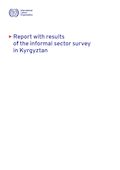
Report with results of the informal sector survey in Kyrgyzstan
06 October 2023
The survey of informal workers was conducted as part of the ILO project "Transition from Informal to Formal Employment" with direct involvement of sectoral trade union organizations. The survey results will be used by sectoral trade unions to expand their outreach and effective organizing among informal workers.
-

Diagnostic report. Transition from informal to formal employment: Extension of social protection schemes (maternity and unemployment) in Kyrgyzstan
06 October 2023
The purpose of this inception report is to demonstrate an understanding of the problem and theory of change for the assignment (i.e., the role of social protection in facilitating the transition from informal to formal employment in the Kyrgyz Republic).
-
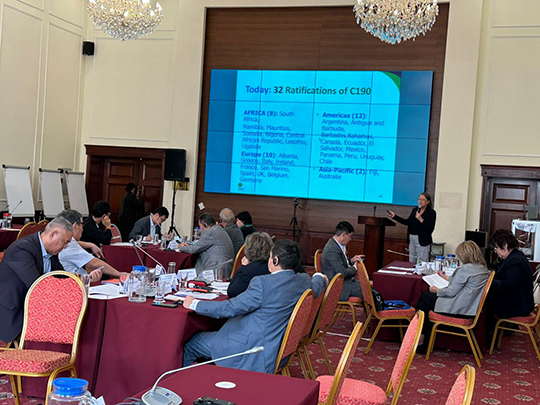
Kyrgyz union leaders call to guarantee freedom of association and free the world of work from violence and harassment
29 September 2023
Trade union leaders of Kyrgyzstan have discussed ways to promote freedom of association and address violence and harassment through independent and democratic trade union policies and workplace practices during tripartite technical consultations in Bishkek on September 27-28, 2023.
-
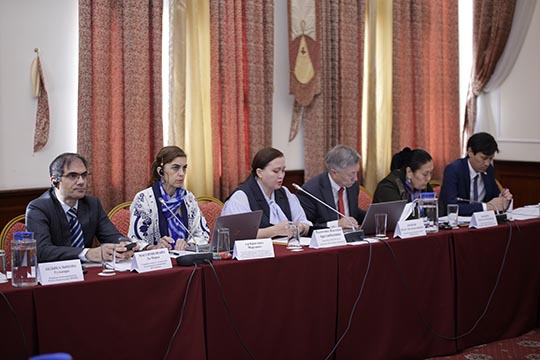
Just transition and climate change issues high on the constituents’ agenda in Kyrgyzstan
11 September 2023
On 5-10 September 2023, national tripartite constituents – government, employers’ and workers organizations - and other partners participated here in a series of events dedicated to the climate change and just transition agenda.
-

Quick Guide to Budgeting Process in the Kyrgyz Republic
04 September 2023
This report was prepared by the ILO external consultant Kadyrbek Kalkanov, with support of the International Labour Organization (ILO), represented by Jasmina Papa.
-
Promoting just transitions for an environmentally sustainable economy in Kyrgyzstan
25 August 2023
-
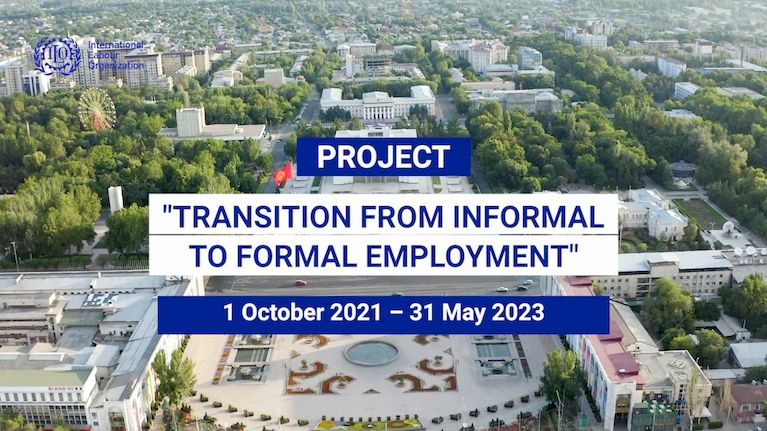
Project “Transition from Informal to Formal Employment”, Kyrgyzstan
10 July 2023
Project implementation period: 1 October 2021 – 31 May 2023. The video-reel captures key achievements of the project, namely: (i) capacity building activities for workers’ organizations; (ii) gender-responsive diagnostics and focus-group discussions with informal workers; (iii) measurement of informal employment and application of international labour statistics standards; (iv) extension of social protection schemes to informal workers; (v) information campaign conducted by trade unions with a focus on informality.
-
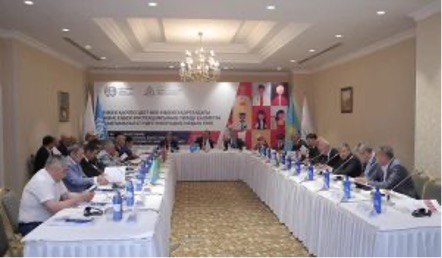
ILO experts and trade unions in Central Asia discuss workplace safety in the region
23 June 2023
On June 23, 2023 a two-day Regional Conference of Trade Unions of Central Asia on “The role of trade unions in ensuring occupational safety and health and the effective functioning of the labour inspectorate” opened in Astana. It was organized by the Federation of Trade Unions of Kazakhstan under the auspices of the International Labour Organization.
-
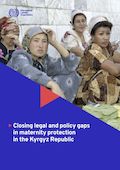
Closing legal and policy gaps in maternity protection in the Kyrgyz Republic
20 June 2023
This report documents the changes which have taken place in national policies and legislation related to maternity protection in the world of work since the Government received the reports and publications reviewing relevant laws of the Kyrgyz Republic from the viewpoint of provisions of the Maternity Protection Convention, 2000 (No. 183) and the Workers with Family Responsibilities Convention, 1981 (No. 156); and it highlights ILO standards, which can assist specialists and experts in improving and implementing the maternity protection strategy in the world of work.
-

Kyrgyz Republic: Social Protection Profile
20 June 2023
The social protection system of the Kyrgyz Republic has undergone several reforms on the level of individual programmes in the last three decades. Yet, significant gaps persist in both legal provisions and in terms of effective coverage, adequacy of benefits and access to social care services exposing all age groups to a wide range of risks throughout their lifecycle.